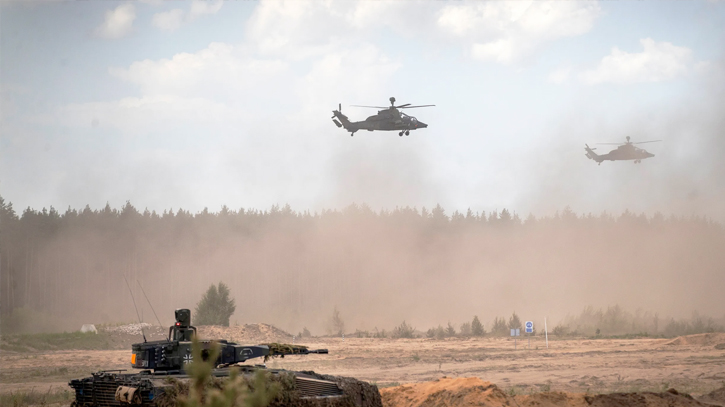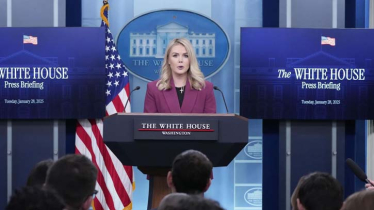
Photo: Collected
Italian Air Force Eurofighter Typhoon military fighter jets participate in NATO's Baltic Air Policing Mission operate in Lithuanian airspace, on 12 Sept, 2023. NATO grew out of secret talks among U.S. officials after World War II about how to supply military equipment to Western Europe and ensure a coordinated response to any attack by the Soviet Union.
When Donald Trump suggested during the 2016 presidential campaign that he might not honor a U.S. commitment to defend other NATO countries if they were attacked, it triggered alarm throughout the trans-Atlantic alliance.
With Trump's "America First" rhetoric drawing cheers from fervent supporters, the future of the North Atlantic Treaty Organization is once again on the agenda. But this time, European leaders acknowledge the alliance must evolve to meet the challenges of the 21st century and say they are ready to shoulder more responsibility for their own defense.
A lot has changed in eight years
First, Trump's presidency forced Europe to recognize that U.S. military support was no longer guaranteed, then Russia's invasion of Ukraine underscored the threat on its eastern border. Meanwhile, the U.S. has increasingly focused on China's expansion in the Asia-Pacific, as well as Iran and North Korea.
"Confronted with powers such as Russia and China, and a United States whose pivot to Asia seems inevitable, no matter who wins the next election, we Europeans need to do more to ensure our own security," Josep Borrell, the European Union's foreign policy chief, wrote last weekend.
After relying on U.S. leadership of NATO to protect them with overwhelming nuclear and conventional capability for the past 75 years, European nations must take on a larger role in funding and leading the 32-nation alliance because their interests are increasingly diverging from those of the United States.
"We are talking about a NATO which the United States is still part of, but which the United States is no longer the indispensable leader (of)," said Malcolm Chalmers, deputy director-general of the Royal United Services Institute, a London-based think tank focused on defense and security. "I mean, that is what JD Vance and Donald Trump are talking about. They're talking about a NATO that is transformed and one in which the Europeans take the greatest share of the burden."
NATO's military structure is headed by the Supreme Allied Commander Europe, who is also the commander-in-chief of American forces in Europe. The U.S. is expected to spend almost twice as much on its military this year as all the other alliance members combined, according to NATO statistics.
Trump's skepticism about NATO was underlined last week when he named Vance as his running mate. Vance has opposed U.S. support for Ukraine, has criticized European nations for slashing defense spending since the Cold War, and said it's time for "Europe to stand on its own feet."
Europe got another wakeup call on Sunday (21 July) when President Joe Biden, whose strong support for NATO was cemented during standoffs with the Soviet Union in the 1970s, said he would not seek reelection. Vice President Kamala Harris, the likely Democratic presidential nominee, has backed the administration's position on NATO and aid to Ukraine, but she entered politics long after the Cold War and is better known for her work on domestic issues.
"The question is whether she will have that same strong trans-Atlantic view that's kind of part of her blood in the way that Biden had it," said Armida van Rij, an expert on European security policy at the Chatham House think tank in London.
Trump's threat to renege on NATO's collective security guarantee, a cornerstone of the alliance, is based on his belief that member states aren't living up to their funding commitments, forcing U.S. taxpayers to subsidize Europe's defense.
A second Trump presidency would bring that mindset to the White House
"Today … we peer apprehensively across the Atlantic at a worst case in which an erratic, ignorant, self-obsessed prospective U.S. president might cut us loose,'' historian Max Hastings wrote in The Times. "Trump is right about one big thing: behind an American shield, since the 1950s Europeans have enjoyed an almost free ride. This is now over, and Vladimir Putin is licking his lips.''
Messenger/Nishat








